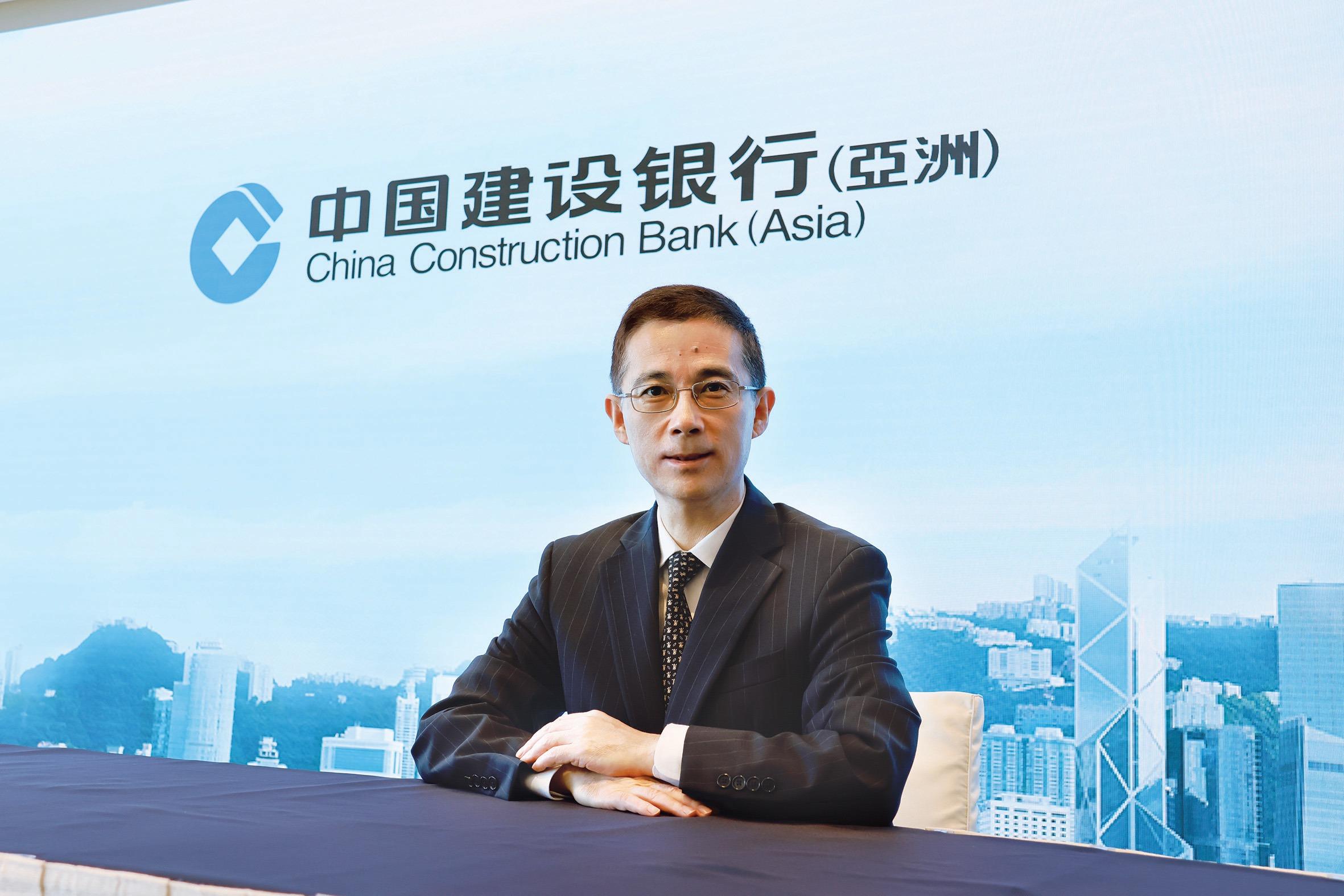 Zhang Jun, CEO of the Construction Bank (Asia), says that Hong Kong can play a vital role in renminbi internationalization by optimizing the city’s RMB services and improving the trading environment for using the currency. (LESLEY LIU / CHINA DAILY)
Zhang Jun, CEO of the Construction Bank (Asia), says that Hong Kong can play a vital role in renminbi internationalization by optimizing the city’s RMB services and improving the trading environment for using the currency. (LESLEY LIU / CHINA DAILY)
Under the country’s vision of internationalizing its currency, Hong Kong will play an increasingly important role as a “testing ground” and “firewall” by enriching investors’ choices for renminbi products and deepening ties with the mainland’s capital market.
Zhang Jun, vice-chairman and CEO of China Construction Bank (Asia), made the remarks during an interview with China Daily on Wednesday.
As the first offshore market to launch a renminbi business in 2004, Hong Kong has long been considered the global center for RMB trade settlement, financing and asset management, where a wide range of RMB products and services are available to meet the demands of businesses, financial institutions, and investors.
According to the Society for Worldwide Interbank Financial Telecommunication (SWIFT), more than 70 percent of global offshore renminbi payments are processed in Hong Kong.
As of April, renminbi deposits in Hong Kong were at about 980 billion yuan ($135 billion), according to data from the Financial Services and the Treasury Bureau, which also stated that the issuance of offshore RMB bonds in the city doubled to 330 billion yuan in 2022.
“Hong Kong should continue to leverage its advantage as the world’s largest pool of offshore RMB funds and provide comprehensive RMB services for domestic and overseas enterprises and individuals, thereby further improving its offshore RMB ecosystem and increasing the use of RMB in global trade,” Zhang said.
Among the city’s efforts to beef up its offshore RMB market was the June 19 launch of the much-anticipated Hong Kong Dollar-Renminbi Dual Counter Model, which allows investors in Hong Kong to trade stocks concurrently in both yuan and Hong Kong dollars.
The city’s bourse operator, Hong Kong Exchanges and Clearing, has so far approved the first batch of shares of 21 listed companies to be included in the dual counter model. These include Chinese e-commerce giant Alibaba Group, artificial intelligence company SenseTime, and Hong Kong developer Sun Hung Kai Properties, accounting for around 40 percent of daily stock market turnover.
Zhang said Hong Kong should also make good use of its strength in connecting the country to the rest of the world following an array of cross-border connect programs launched in stocks, bonds, wealth-management and derivatives products.
The northbound Swap Connect is the latest cross-border investment platform to be added to the basket in May to help global investors in Chinese bonds hedge their exposure.
Citing the long-awaited insurance connect, which has been earmarked by the Hong Kong government for a future move to boost mutual market access, Zhang said the pool of offshore RMB is expected to see a huge increase given the growing amount of the cross-border investment programs.
“Hong Kong’s advantage of being a superconnector is unparalleled,” Zhang said. “Through the continuous deepening of the financial links with the mainland, Hong Kong will no doubt help the country attract global financial resources and further open up the financial sector.”


